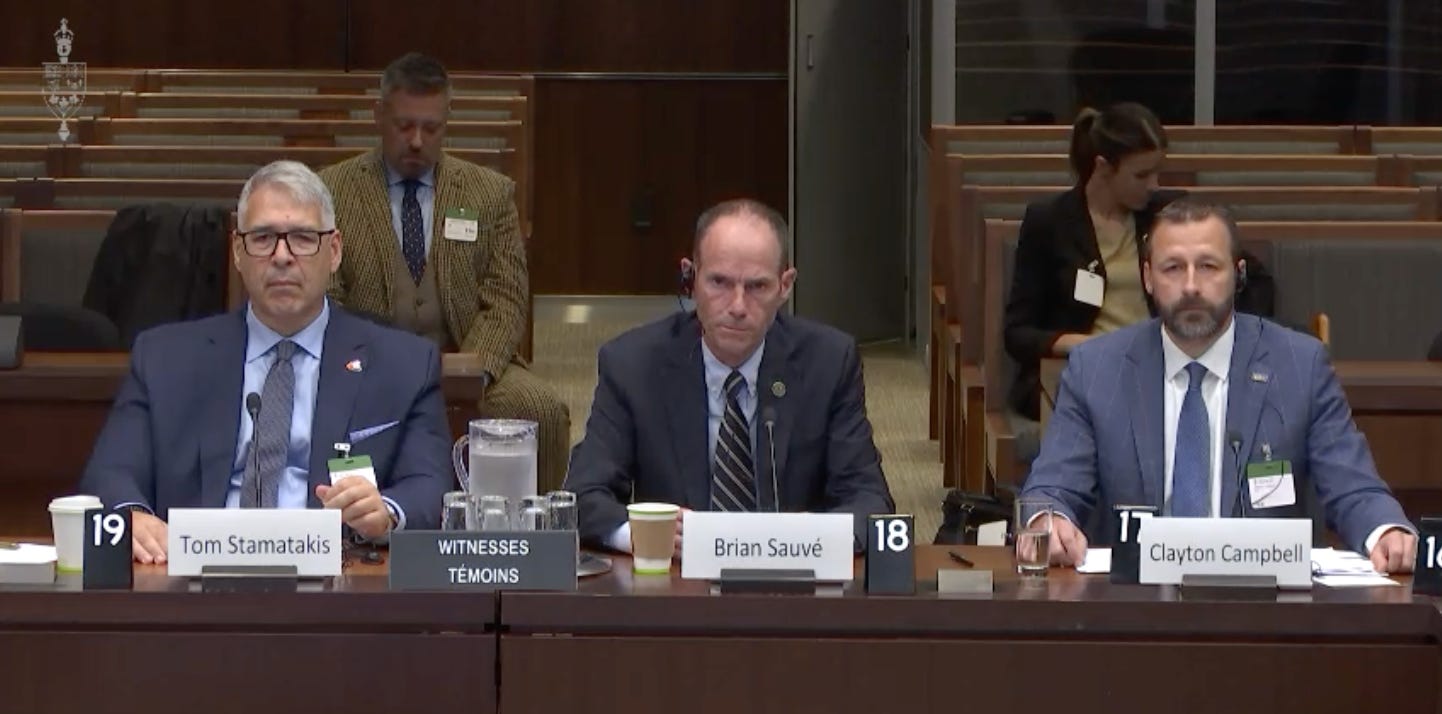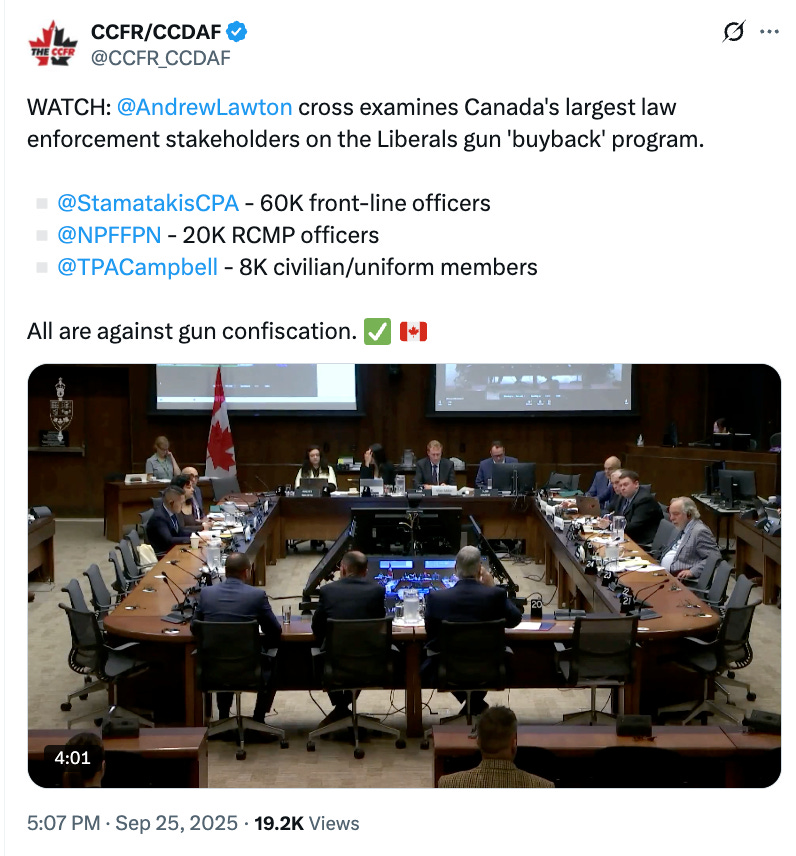Police union chiefs: Liberal gun grab will have ‘zero impact’ on crime
Police union leaders blasted the Liberal government on Thursday, pressing them on lax bail oversight, repeat offenders, “safe supply” policies, and the federal gun confiscation program.
Police union leaders blasted the Liberal government on Thursday, pressing them on lax bail oversight, repeat offenders, “safe supply” policies, and the federal gun confiscation program.
Several police union heads appeared before the Standing Committee on Justice and Human Rights on Thursday to express their concerns. The committee had not met since the early summer, when it was adjourned for several months despite rising crime in Ontario and a last-minute pledge from the Carney Liberals to enact substantive criminal justice reforms ahead of the most recent federal election.
After a lengthy delay, Canadian Police Association president Tom Stamatakis, National Police Federation president Brian Sauvé, and Toronto Police Association president Clayton Campbell appeared before the Standing Committee on Justice and Human Rights on Thursday. They raised concerns about officer safety, gaps in federal bail data, recruitment and retention challenges, “safe supply” programs, and the need for stronger federal support for frontline policing.
The Liberal government’s firearms confiscation program, first billed as a “buyback” in 2020, was also a major focus.
The initiative, which bans more than 2,500 previously legal models, has faced repeated delays, confusion and controversy. It is now slated to conclude by the end of 2026 at an estimated cost of nearly $2 billion.
The program has been widely criticized for its inefficacy and lack of clear directives.
At one point, Conservative MP Andrew Lawton cross examined Canada’s largest law enforcement stakeholders on the Liberals gun “buyback” program.
“Has Public Safety Minister Gary Ananadagasaree ever consulted with you on the firearm’s buyback (program)?” Lawton asked the witnesses.
The question drew an objection for “relevance,” but in a surprising show of bipartisan support, Liberal chair Marc Miller allowed the questioning to continue.
“We’ve talked about this before,” Campbell responded. “The gun buyback program is going to have zero impact on the crime we’re seeing in the city of Toronto. Period.”
Other witnesses on Thursday similarly doubted the gun confiscation program’s efficacy—something chair and Conservative MP Larry Brock called “an absolute disaster.”
The initiative, pitched as a “buy back” program in 2020, bans over 2,500 models of previously legal firearms. It has been repeatedly delayed and is now set to conclude by the end of 2026, with costs expected to reach nearly $2 billion.
Earlier this week, Liberal Public Safety Minister Gary Anandasangaree joked to a tenant that he would personally bail him out of jail if arrested in relation to the program.
“I will come and bail you out if that happens. You call me,” he said.
Those comments have resulted in some calling for Anandasangaree’s resignation.
On bail reform, for instance, Campbell pointed to problems with sureties. In Canadian law, a surety is a person who agrees to supervise an accused released on bail and pledges money or assets that can be forfeited if conditions are breached.
Aside from a surety’s typically small financial pledge, due diligence on who “qualifies” is virtually non-existent.
“Currently anyone can take this role and act as the ‘eyes and ears of the justice system,’” Campbell explained.
“We want legislation to define who is unstuitable to be a surety,” he went on. “If that person has a criminal record, has previously acted as a surety for someone who breached their conditions, or if there is a power imbalance between the surety and the accused, these factors should disqualify them for this role.”
Campbell also called for “strengthening secondary grounds” for denying bail, referring to the likelihood of a suspect re-offending if released. Specifically, Campbell argued for a “mandatory provision” wherein anyone with “two previous convictions for serious violent offences” would be ineligible for release on bail for 10 years.
When pressed by committee members on how dire the need for bail reform was, all the witnesses decried a total lack of national bail data —something previously reported on by True North—as a reason they couldn’t comment with confidence.
True North has reached out to the Public Safety Minister and his department on this topic and others multiple times via email but has received no response.
The justice committee is holding hearings as part of its ongoing study into criminal justice reform. It is expected to hear further testimony from community groups, legal experts and victims’ advocates in the coming weeks.





Well of coarse it wont work. It wont reduce crime, they know that.. this is a gun grab to disarm Canadians. Every thing the liberals do is for the common goal of the WEF agenda. Communism and control of people. straight up evil. simple as that.
This goes to the heart of the Liberals failed policies. They have tanked us time and time again. Who are these brain dead people that vote for tired old Liberals who have shown to be terribly inept at running a lemonade stand. It's scary folks.. come Nov. 4th they'll conjure up more lies to cover their carnage in this country.